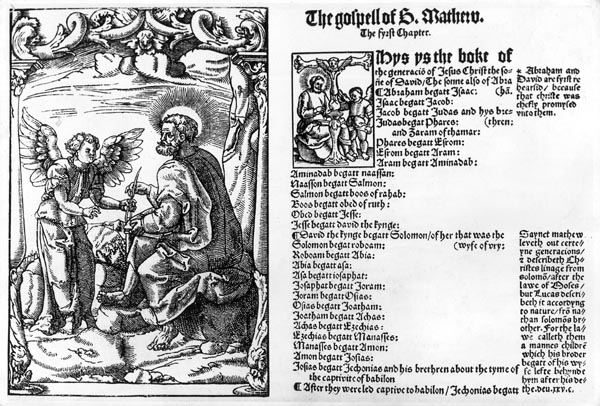Image Details

G. 12179/Grenville Collection, British Library/Photo by Hulton Archive
Tyndale’s Bible. Only a fragment from the Gospel of Matthew (beginning with “Thys ys the Boke of the generatio of Jesus Christ”) survives from the first edition of the New Testament produced by the English theologian and priest William Tyndale. With Bible translation still banned in England, William Tyndale fled to Germany in about 1525. He began printing his New Testament in Cologne that year, but local authorities raided his printer’s shop before he completed his work. A year later, Tyndale completed a portable edition of the New Testament in Worms, Germany. He had finished translating half of the Old Testament by 1536, when he was deemed a heretic and strangled and burned at the stake. His was the first English translation based on the original Greek and Hebrew languages, rather than Latin; it has heavily influenced most every translation since, including the King James Version, about 80 percent of which comes directly from Tyndale’s Bible.
Bible translation remained illegal in England until 1538, when Henry VIII, having already left the Roman Catholic Church and named himself head of the Protestant Church of England, commanded that every church should have a copy of the English Bible.
